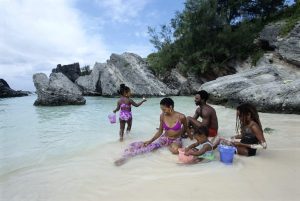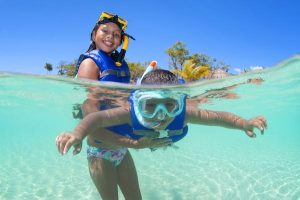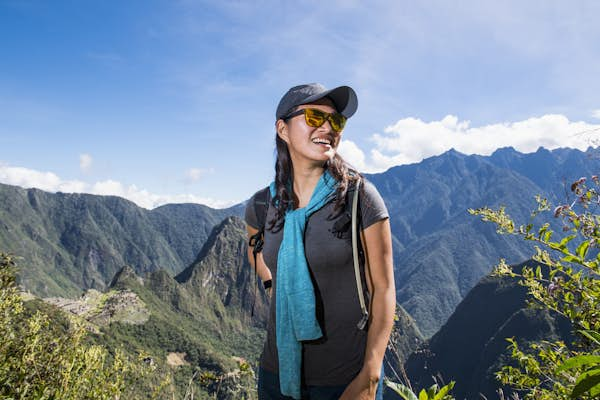
Peru may be known as a cradle of ancient civilizations, but its topography also makes it a wonderland of adventure.
The icy mountain peaks of the Andes draw trekkers and climbers, the untamed desert coast is lapped by excellent waves for surfers, and for explorer types, there’s the Amazon – a vast mass of wetlands and rainforest brimming with monkeys, macaws and slinky, rare felines.
Gear up – Peru is a wild ride! Plan your trip with this guide to the country’s very best experiences.
Explore the planet’s most surprising adventures with our weekly newsletter delivered to your inbox.
1. Hike the Inca Trail
A winding footpath climbs from the depths of the Urubamba Valley, through vaporous cloud forests, alongside the ruins of ancient way stations. For the Incas, this roadway was the main entry point to the exquisite estate of Machu Picchu. For the thousands of travelers who hike the trail every year, it is a pilgrimage – a rugged four-day trek through sumptuous scenery, and the final stop is the most spectacular archaeological site in Peru.
Planning Tip: If planning to go during high season (June–September) be sure to purchase your entry ticket to the Inca citadel online and in advance, as waiting to do so in person can run the risk of tickets being sold out.
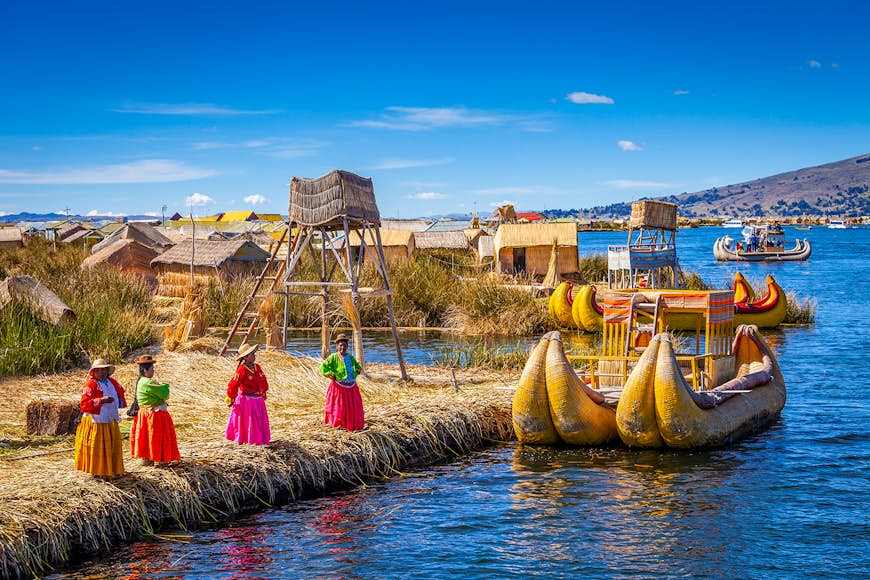 Stay on one of Lake Titcaca’s floating islands © saiko3p / Getty Images
Stay on one of Lake Titcaca’s floating islands © saiko3p / Getty Images
2. Spend a night on an island in Lake Titicaca
According to Andean belief, Lake Titicaca is the birthplace of the sun. Lay your eyes on the sapphire-colored waters of South America’s largest lake and it’s hard not to feel a certain magic. Spending the night on one of the floating islands is the best way to experience this place, with its small rural settlements where life is lived according to the rhythm of the seasons. The best part? Sunset surrounded by the lake’s gleaming waters.
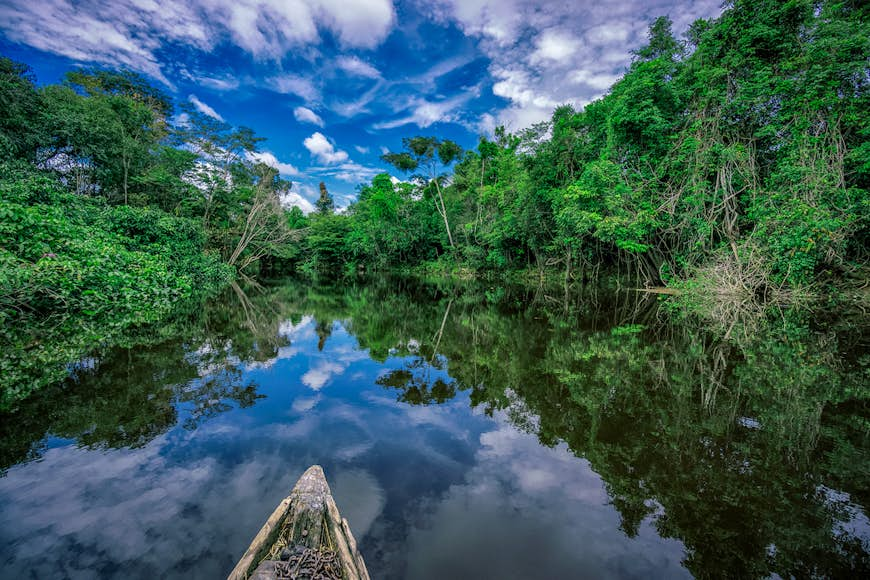 High waters from December to May mean kayaks can travel further in the Peruvian Amazon © Kim Schandorff / Getty Images
High waters from December to May mean kayaks can travel further in the Peruvian Amazon © Kim Schandorff / Getty Images
3. Kayak through the Amazon rainforest
The Amazon Basin is known for its intense biodiversity and riotous rainforest wilderness. Parque Nacional Manu protects one of its wildest, most remote corners. Located at the watershed of the Rio Manu, one of the many tributaries that eventually leads to the Amazon River, this wet web of rivers is a feast for wildlife spotting – from tapirs to ocelots to flocks of brilliant, cackling macaws.
Planning Tip: Keep in mind that high water season (December–May) means there will be more possibilities to navigate through small tributaries by kayak, whereas low water season (June–November) is ideal for trekking through the rainforest.
4. Trek the Andes
The Cordillera Blanca, a majestic mountain range at the heart of Peru, can make the most devoted couch potato want to strap on a pack and go. A network of craggy peaks covered in dollops of gleaming white snow draw dedicated high-altitude trekkers who wind through alpine lakes and diminutive Andean villages. If the altitude doesn’t take your breath away, the vistas certainly will.
Planning Tip: From Lima, take an eight-hour bus ride to mountain town Huaraz where you’ll want to spend a night or two in order to adjust to the elevation. Here you’ll find plenty of guides offering treks around the Cordillera Blanca of all lengths and levels of difficulty. Whether it’s the Laguna 69 day hike starting out in Cebollapampa, the popular four-day Santa Cruz trek or the grueling week-long Alpamayo Base Camp trek (both starting out in Vaqueria), all of the options are scenic adventures.
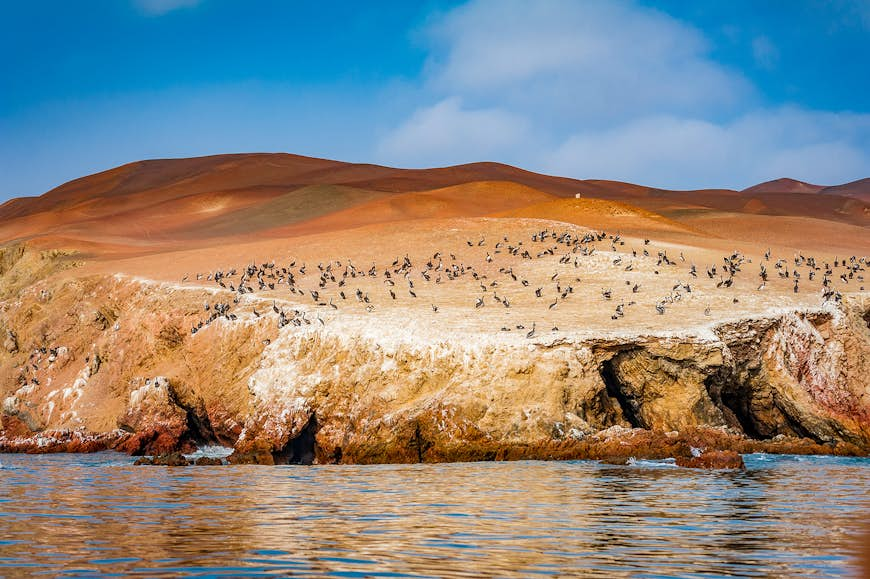 Observe the unique wildlife of Paracas Peninsula © Oleksandra Korobova / Getty Images
Observe the unique wildlife of Paracas Peninsula © Oleksandra Korobova / Getty Images
5. Look for wildlife on Islas Ballestas
Off the Paracas Peninsula, on the country’s southern coast, the small rocky outcroppings known as the Islas Ballestas don’t look like much from a distance. But hop in a boat and you’ll see an array of wildlife: honking sea lions, preening Humboldt penguins and colonies of Peruvian boobies. The islands are known as the “poor person’s Galápagos” for good reason. On your way back to shore – surely to lunch on ceviche or parihuela (a seafood soup) – ponder the mysterious El Candelabro geoglyph whose origins and meaning are still unknown.
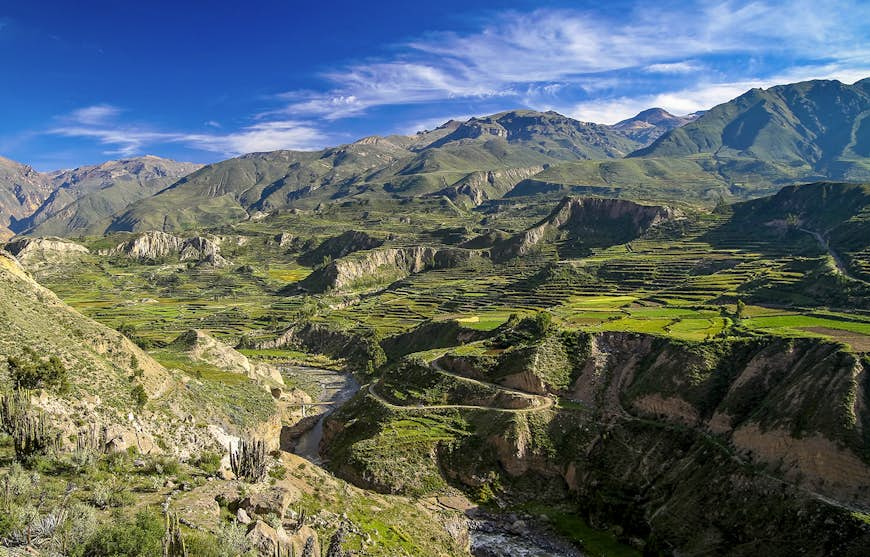 Take in the green terraces of Cañon de Colca © Westend61 / Getty Images
Take in the green terraces of Cañon de Colca © Westend61 / Getty Images
6. Descend into the majestic Cañón Del Colca
The Cañón Del Colca, four hours outside of Arequipa, is a wonderland of Andean panoramas: a deep canyon studded with idyllic villages and mountainsides carved by ancient terraces. Oh, and did we mention the condors that soar on the wind currents? From Chivay, visitors can explore the canyon on short day hikes or even trek to its floor (some 1219m/4000ft down from the trailhead) and back up again before nightfall, however it’s recommended to soak in the scenery (and perhaps the hot springs) over the course of a few days.
Planning Tip: There’s one thing no traveler should miss while here: the local delicacy known as chupe de camarones, a spicy shrimp bisque.
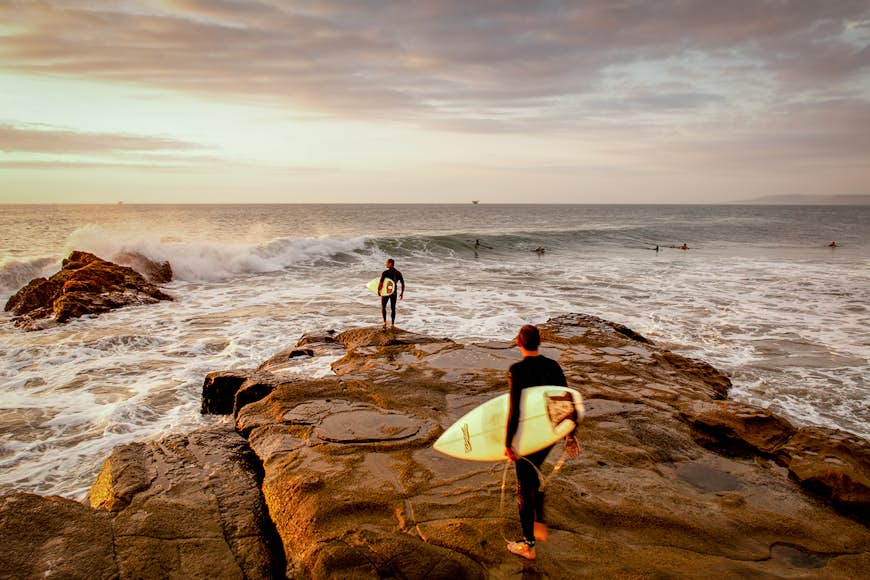 Catch a wave at one of Peru’s north coast breaks © Epicurean / Getty Images
Catch a wave at one of Peru’s north coast breaks © Epicurean / Getty Images
7. Go surfing along the north coast
Peru’s lengthy coastline – more than 3000km (1864 miles) long – offers a veritable buffet of experiences for the surfing set, with big swells and uncrowded breaks. For the best curls, wave riders head north up the coast from Lima to the languid settlements of Huanchaco and Chicama, both of which lie just outside of Trujillo (an hour flight or eight-hour bus ride from Lima).
Planning Tip: For guaranteed sun, take it further north to Máncora, where surf, seafood and the slow life go perfectly together.
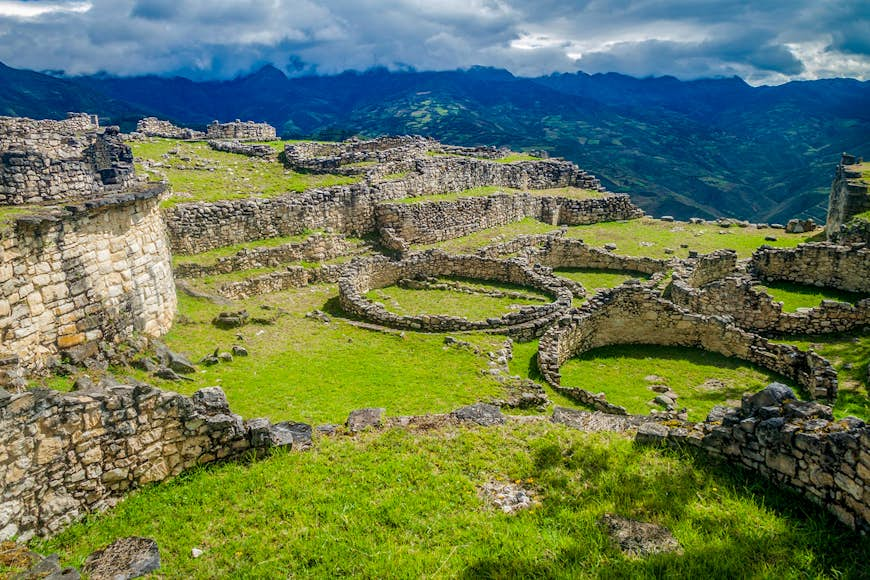 Wander the ruins of distinctive round houses of Kuelap © Matyas Rehak / Shutterstock
Wander the ruins of distinctive round houses of Kuelap © Matyas Rehak / Shutterstock
8. Visit the mysterious ruins of Kuélap
The Andes are dotted with the remnants of ancient cities. Kuélap ranks among the most magnificent: a walled citadel built by the Chachapoyas people on the crest of a mountain in the northern Peruvian cloud forest. The views of the Utcubamba Valley are staggering, the ruins are unusual, and the journey here through timeless rural settlements is unforgettable.
Planning Tip: There are three options to get to the top of Kuélap: by car (a two-hour drive from Chachapoyas), by foot (a six-hour trek round trip, beginning in Tingo Viejo), or a 20-minute cable car ride.
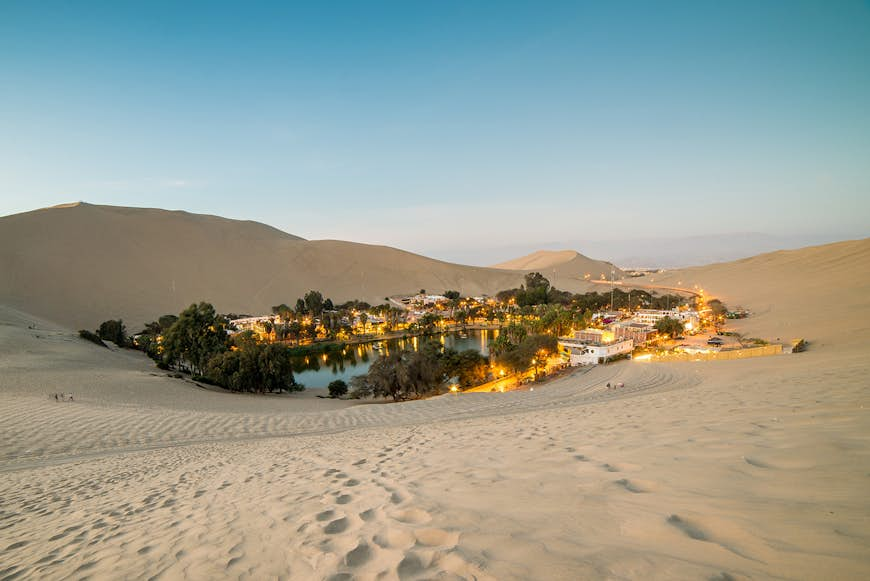 Hear local legends in the desert oasis of Huacachina © Andrew Clifforth / Shutterstock
Hear local legends in the desert oasis of Huacachina © Andrew Clifforth / Shutterstock
9. Board down the giant sand dunes of Huacachina
Huacachina, a tiny oasis in the southern Peruvian desert, offers one of the country’s more unusual adrenaline rushes: the opportunity to motor to the top of a dune the size of a small building, strap on a board, then fly down the face of a towering wall of sand. Not up for boarding? Take on the dunes in a buggy instead. Sitting at any of the bars or restaurants that line the lagoon may be your chance to hear of mermaids, Inca princesses and forlorn lovers. It’s all in the good fun of the local legend concerning the origin of Huacachina.
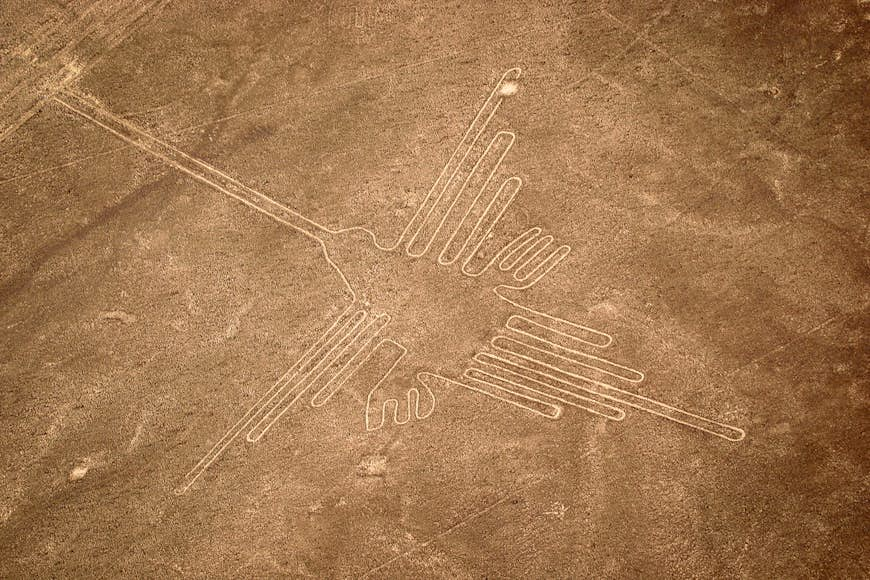 The Nazca lines are best seen from the air © StanislavBeloglazov / Shutterstock
The Nazca lines are best seen from the air © StanislavBeloglazov / Shutterstock
10. Soar over the ancient Nazca Lines
One of the earth’s greatest mysteries sits quietly on the arid Peruvian coast. The Nazca Lines consist of more than 70 ancient glyphs of animals and other shapes that are so big they can only be seen from the air. No one knows their purpose. For an incredible out-of-body experience, soar in a light-aircraft over these pre-Columbian pictograms in the early morning hours.

